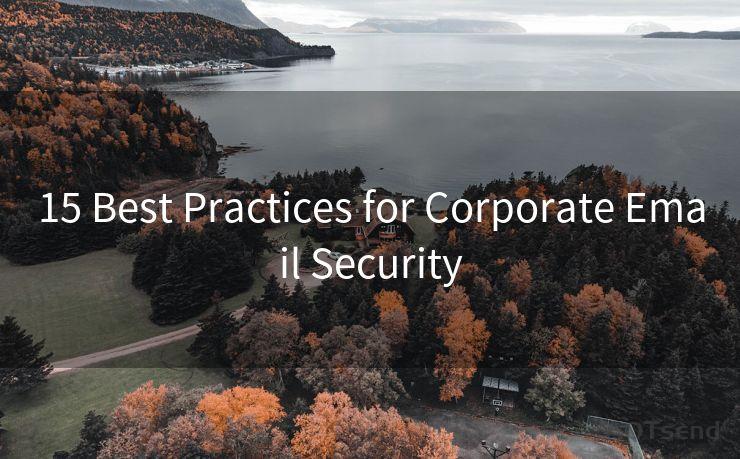15 Best Practices for Corporate Email Security




In today's digital age, corporate email security is paramount. With the increasing frequency of cyberattacks, it's crucial for businesses to implement robust security measures to protect sensitive information. Here are the 15 best practices for corporate email security that you should follow:
1. Use Strong Passwords
The first line of defense is a strong password. Encourage employees to create complex passwords that are difficult to guess and change them regularly.
2. Enable Multi-Factor Authentication
Adding another layer of security, multi-factor authentication requires additional verification steps, such as a fingerprint or a one-time password, making it harder for unauthorized access.
3. Implement Email Encryption
Ensure that sensitive emails are encrypted to prevent data leaks. Encryption scrambles the email content, making it unreadable to anyone without the proper decryption key.
4. Educate Employees on Phishing Scams
Regularly train employees to recognize and avoid phishing scams, which often come through email and can lead to malicious software installation or credential theft.
5. Use Secure Email Gateways
Deploy secure email gateways to filter incoming and outgoing emails, blocking potential threats like spam, malware, and ransomware.
6. Regularly Update Email Systems
Keep email systems and software up to date with the latest security patches to prevent exploits.
7. Implement a DMARC Policy
DMARC (Domain-based Message Authentication, Reporting, and Conformance) helps prevent email spoofing and ensures that only authorized senders can send emails from your domain.
8. Restrict External Email Forwarding
Prevent unauthorized data leaks by limiting the ability to forward corporate emails to external addresses.
9. Monitor Suspicious Activity
Utilize email monitoring tools to detect and respond to suspicious activity, such as unusual login attempts or large file transfers.

10. Implement Data Loss Prevention (DLP) Solutions
DLP solutions can identify and prevent sensitive data from being sent outside the organization via email.
11. Segregate Corporate and Personal Email Use
Encourage employees to keep corporate and personal emails separate to reduce the risk of accidental data leaks.
12. Archive and Backup Emails
Maintain a secure archive of all corporate emails to ensure data integrity and for potential forensic investigations.
13. Conduct Regular Security Audits
Periodically assess your email security measures to identify and address any vulnerabilities.
🔔🔔🔔
【AOTsend Email API】:AOTsend is a Managed Email Service for sending transactional emails. Support Email Types: reminders, authentication, confirmations, notifications, verification codes, invoices, password resets, account activations, billing statements, two-factor authentication (2FA), and one-time passwords (OTP) emails, etc. $0.28 per 1000 Emails. 99% Delivery, 98% Inbox Rate.
You might be interested in:
Why did we start the AOTsend project, Brand Story?
What is a Managed Email API, How it Works?
Best 25+ Email Marketing Platforms (Authority,Keywords&Traffic Comparison)
Best 24+ Email Marketing Service (Price, Pros&Cons Comparison)
Email APIs vs SMTP: How they Works, Any Difference?
14. Prepare for Incident Response
Have a clear incident response plan in place to minimize damage and recover quickly in case of a security breach.
15. Stay Vigilant
The threat landscape is constantly evolving. Stay vigilant and adapt your security practices to emerging threats.
By following these 15 best practices for corporate email security, you can significantly reduce the risks posed by cyber threats. Remember, email security is an ongoing effort that requires regular updates and employee education. By staying proactive, you can protect your business's sensitive information and maintain the trust of your clients and partners.




Scan the QR code to access on your mobile device.
Copyright notice: This article is published by AotSend. Reproduction requires attribution.
Article Link:https://www.mailwot.com/p1874.html



